October 21st, 2023: Greetings from Hualien. We are enjoying a slower week by the mountains and oceans in the east of Taiwan. I figured this might be a good week to reflect on living abroad and how it’s shaped my life over the past several years.
+ The next community hang-out for subscribers of the newsletter is happening on November 8th. Members can get more information here.
Fittingly, this issue is sponsored by SafetyWing, a service I’ve used multiple times since 2018 and am happy to support as it’s also an organization that is helping to make people’s lives that are embracing remote work easier
I’ve used SafetyWing’s travel insurance multiple times when traveling abroad. They recently launched a new product, Nomad Health, which is more geared to long-term nomads. Americans might be a bit shocked at how much global coverage for something like this costs. Compared to what I pay in the US for my coverage, it’s about 20% of the cost while offering better coverage.
#1 Some Thoughts On Living Abroad, Losing Your “Self,” And The Future of Travel
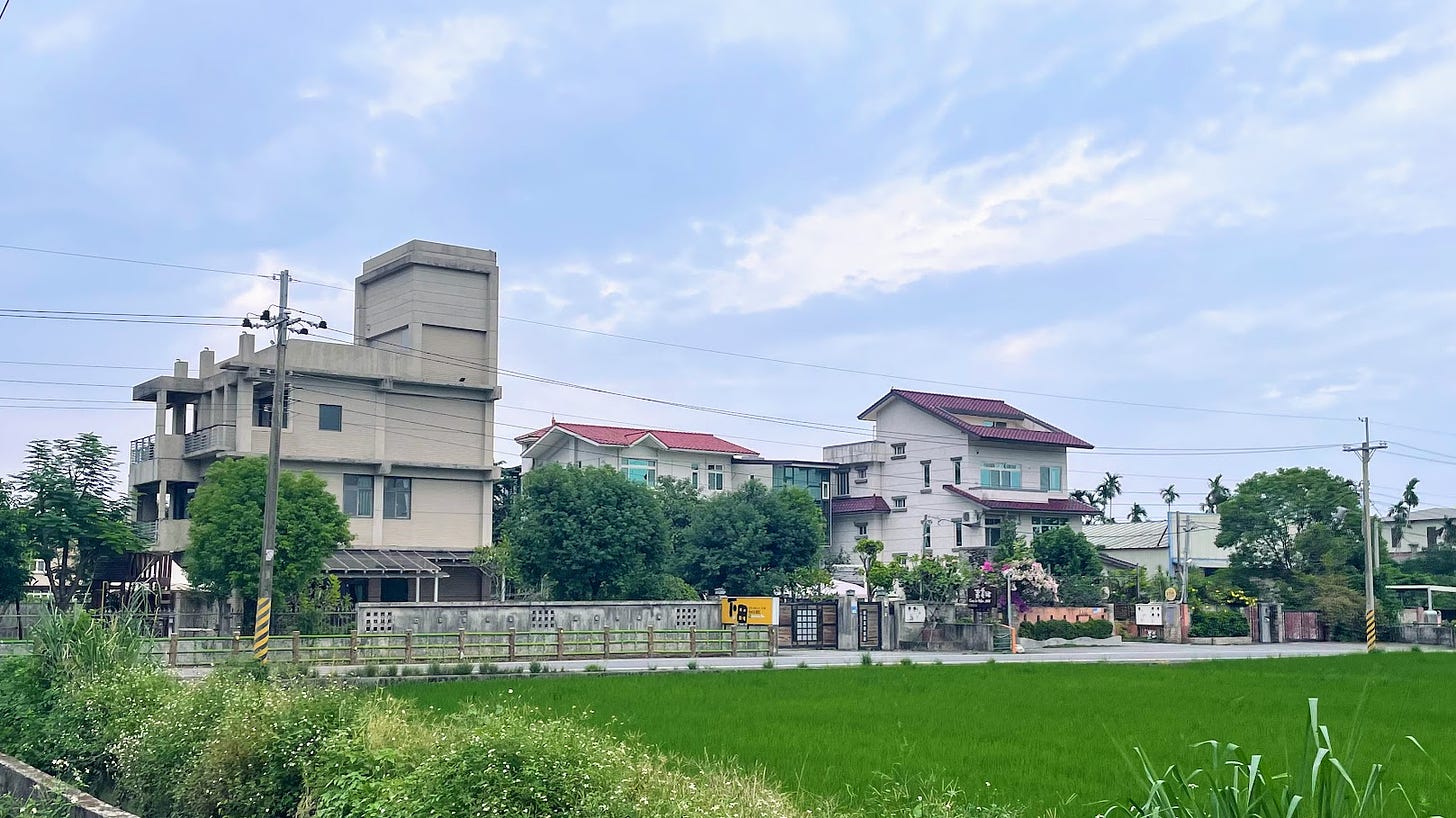
#1 You Will Soften Your Attachment To Yourself
I was talking to someone from Taiwan last week and he made a comment: “Americans are so good at working.” He meant it as a compliment. To him, whenever he worked with Americans they got stuff done and were effective and efficient. With people from other countries, it was just harder.
For a three-year stretch in 2018, I spent less than 20% of my time in the US. This was a useful detox from this “good at working” culture. It was hard for me to see how deep this worker energy went until left. This is because it is not only about having a job. It’s a way of seeing the world. I remember walking around Taipei in the first weeks thinking to myself, “If only this food stand had better marketing and signs and an English menu, they could increase profits.” I shared this thought with a local and was met with the saddest look in the world. You poor thing, she seemed to be thinking.
I wanted desperately to rid this energy from my body but eventually, I realized that one cannot reject the fabric of reality in which they were raised. Right now I am in a relaxed city on the east side of Taiwan and there are many cafes and stores that decide not to open some days. I don’t know the reasons, maybe because it’s raining or they just didn’t feel like it. Here are the hours for the one I’m writing this in right now:
My brain still thinks about the opportunity cost of such decisions. They could hire someone to operate the store earlier. They could add a delivery service. Better signage. I am not sure one ever rids themselves of their neurotic thoughts. But I don’t see myself as the person who defines himself by doing anything about these thoughts. I can laugh at myself and think, “Oh, that’s business Paul. He has an MBA, let him cook.” To me, this has been one of the best things about living in other countries, the forced perspective-taking that happens when we exist in another world.
#2 But This Means You Are Inevitably On Some Sort Of Journey, Likely Lost - This Will Rattle People Back Home and The Solution is To Find Other “Third Culture Adults”
Almost everyone I’ve met who has spent extended time abroad is pursuing something. Whether is it adventure, escape, or enlightenment, the thing that all of these people have in common is that their own sense of self will change or will start to loosen it’s grip over the person. One result of living abroad for me is that I no longer see myself as a successful person, something that was core to my worldview in my twenties. The problem with this is that many other people in my life still see me as this person.
I’ve been listening to Ram Dass's lectures from the ‘60s and ‘70s and it was funny to hear how he compared his own spiritual journey with his own “trips” back home:
And I would get so clear and so peaceful and so loving and so present. I felt like a combination of the pure mind of the Buddha and the heart of the Christ. I was really out there, and my eyes light was pouring out of my eyes, and I was full of what's called shakti, and I was just and I then come back to the United States, and I would go to visit my family, and my father would say just some simple thing like, do you have a job?
He eventually realized that obsessing over this tension was another way of identifying as somebody special, someone that needed to be acknowledged, and that it took many more years until he was able to soften this attachment too:
Instead of getting so caught in them, instead of taking myself so seriously, instead of taking my personality so seriously, and I don't shove it under the rug, I acknowledge it. It just doesn't have the power over me that it had, because there is another part of my identity that has been cultivated in this course of time.
While I’m still struggling with this, I’ve realized how desperately I’ve wanted those in my life to understand the “new” me like I just returned from a study abroad trip and how this tendency is just as big a trap as needing to feel special on my previous path. The one thing that’s helped loosen my need for such approval is befriending “third culture adults” - those who have disconnected from their own default paths and exist with similar contradictions. These people seemed to intuitively understand that like them, others need space for their current lack of legibility and that sometimes it’s better to let people be a bit confusing without needing to get them to try to force them into a “somebody” container. Sam Harris has this amazing meditation on the “social self” that Angie and I often listen to and I think the key thing here is that this is ultimately not about what others think of us, it’s our own ability to be with ourselves in the present as we truly are:
But we're all in this situation generally. We all have encounters with people which seem to destabilize us, where we don't feel we have access to our full capacities as human beings, to our best selves. So many encounters with other people are less than satisfying. And what makes them less than satisfying is generally the degree to which we're encumbered by neurotic self-concern.
Let's say you're going home for the holidays and spending extended time with your family. Now your family will tend to see you as continuous with who you've always been for them. So there's often a special dynamic there. No matter how much you've changed, your family will find a way to fit you to the pattern of who you used to be.
The trap, however, is that we use this as an invitation to double down on the “new” you:
Now, there's no question that mindfulness can help free you in social situations like this. But you don't want to become a source of greater self-consciousness when you're with others. Your meditation practice shouldn't make you more aware of yourself. It's not a mode of inwardness that causes you to recoil even further from relationship. Ideally, mindfulness should free you to pay more attention to whoever you're talking to.
Nonetheless, this is hard and this is why hanging out with other people dealing with these similar tensions can feel so great. We hung out with a Taiwanese and Italian couple with two kids last week and it was great to be able to talk about our similar challenges of raising children, what languages to speak, and deciding where to live when you have to make tradeoffs that not everyone is happy with. Angie and I are both from families where almost no one has lived abroad as adults by choice for an extended stretch of time and it can be hard for us to explain ourselves when we know almost everything we decide to do with our lives will likely disappoint other people. This is because in a sense we both have left our cultures. We have emigrated somewhere but not a place that we can point to on a map. It’s a place that is unique to our family. This is something that excites us and is what has drawn us together but this also comes with a sense of loss, knowing that we may never fully be of a place.
#3 There are a lot of people
The more places I go the more places there are. You can rationally understand that there are about 8 billion people on this planet but until you go see wide ranges of them you don’t have the sense of it. In Taipei, there are about 3 million people and when you are in the city or in a subway station you look around and think, wow this is a lot of people. But then you look up how many cities there are over 3 million people and you find that there are literally hundreds. Damn, that’s a lot of people.
I grew up in a country that some have called egocentric. The way we think about our position in the world gave me the sense that there were about 300 million Americans and then a handful of representatives from all the other countries who sat around paying attention to the American news.
My in-laws and entire family are all Taiwanese and have been here for a long time. I’m the only American most of them ever encounter. Almost none of them seem to give half a shit about all the things the people in America care about. This shouldn’t shock people. The things Americans hear about Taiwan have almost nothing to do with what most Taiwanese people are paying attention to. It’s the sort of thing that doesn’t really sink in until you spend a decent amount of time in another country and this is why I like living abroad - it helps you realize that we all grow up with ideas of how things are - some useful, some less so.
#4 Once You Leave The Default Path You’ll Want To Leave The Default Cities
The default cities are the center of where work happens. In Taiwan, it’s Taipei. In the US it’s New York or San Francisco. In England it’s London. Most people know the place they should be if they want to prioritize success in their careers. They are great cities. I loved my time in New York and Boston.
But now I find it harder and harder to be in these places. Angie and I were both surprised in our current stint in Taipei by how loud the city is. While you can live in quieter neighborhoods and be protected in beautiful alleys, there are just a lot of people and a lot of sounds. I’m writing this right now in Hualien, Taiwan where we decided to finish our trip. It’s still a city but it has 25x fewer people than Taipei. The difference is noticeable and my nervous system is relaxing. It’s made me realize how much of the things I’ve tried to do in the spirit of feeling good were more about coping with my environment. How many people are meditating, using a sauna, or exercising just to get themselves to a certain baseline of feeling okay? Guilty.
The longer I’m on this path, the more Angie and I are drawn to quieter, calmer places. I’m not sure exactly where yet but when I think about my future and how I want to be writing, I picture looking out at a green expanse rather than a busy street. I still love busy cities. Ambitious and creative people inspire me. But you can visit for a week or two and get the same benefit and at this point in my life, I don’t want to have to work to feel good in my body after I wake up.
#5 Traveling With An Infant Has Been Easier Than Expected
I’m not really sure what I expected. But the way people panic when you tell them that you want to take a baby on a long flight starts to convince you that maybe you are making a mistake. So far it’s been a lot easier than expected. N=1 of course but the biggest challenge is that we just have to carry a bit more around and sometimes buy things you wouldn’t normally buy when you travel, like a travel crib or a play mat.
I think part of this is that moving around with an infant who can’t move is actually much easier than a toddler who can walk and sleeps a lot less. I’ve noticed that the people who get the most distressed about moving around with a baby seem to be operating under the assumption that our choices are permanent. For us, we are trying to approach everything with our daughter as humbly as possible with the assumption that we don’t know what we are doing. We’re more than happy to quickly make changes if things don’t seem to be going well but as far as we can tell our daughter is quite happy. It seems the most stressed parents are the ones who want everything to go as smoothly as possible and need to have their long-term plan for life figured out right now.
This is why traveling around the world and not having a structured work schedule for six years with Angie was amazing preparation for having a baby. Movement means change and change means conflict. Angie and I have lived in over 30 places over the past five years and in each place we’ve had to negotiate who gets to work in the bedroom and at what times, how we want to spend our time working or not working, how we should deal with the latest unexpected challenge like getting a parasite or getting our scooter stolen, and so on.
These conversations have helped us lay the groundwork for the necessary conversations you need to have once a child is in the mix. But without travel and all the lessons learned along the way I think this would be a lot harder.
#6 The People Who Actually Travel (Especially In Asia) Are Different Than You Assume
When we think of travel, we think of people like us. One surprising thing in Asia is how few Americans there are. While in Europe, Americans are everywhere, here they are hard to find, especially older Americans. I’ve had several people make the joke, “I didn’t know Americans were allowed to travel for more than a week.”
In Asia, the kinds of people traveling are quite diverse. In our recent trip to Bali, I interacted with people from Malaysia, India, China, Taiwan, Azerbaijan, Israel, Indonesia, England, and Australia. When Angie and I travel, we love meeting different people. I think in the US we think of foreign travel as a luxury thing but at least in Asia (and Europe probably too) it’s a lot more accessible and normal to go to different countries. Angie’s family spent a lot of money growing up on going to different countries. They took trips to places like China, Japan, Indonesia, Singapore, Hong Kong, and Thailand growing up. In comparison, I took one trip outside of the US before I was 18 and it was a huge deal.
I think one thing that’s happening with travel is that it is becoming a lot more common because the cost has not increased as much as global wealth has increased in the last 20-30 years. Just like cruises went from a luxury product to a mainstream vacation, I think the same thing is happening with travel broadly. I am not sure what this means for the world but it is clearly happening. What does this mean for the world? I am not quite sure. But one hopes that more connections might lead to more understanding and accepting that as a human species, we are far more diverse and far more alike than we can ever imagine.
#7 Work and types of travel are deeply related
I used to love vacations. They were an escape from the grind. I had to work 48 weeks of every year and you bet your life I was taking all my vacation days. I would maximize the fun I would extract from each week, plotting trips with friends mostly centered around partying and going to the beach.
In the last 6.5 years, while I’ve taken many small trips, I’ve really only taken one “vacation vacation” where I packed up my stuff and went to a single location for a week.
Now I’m more excited about moving somewhere new for six months and seeing how it shifts my relationship to work, self, and the people around me. In ten years I was in full-time work mode I had the sense that I was exploring but I was just performing travel just like I was performing work. I was doing the same things as other people around me and if I didn’t have alcohol, I am not sure I would have taken as many “trips” as I did. I was optimizing for entertainment, excitement, and convenience rather than curiosity and exploration.
Since I’ve unpaired my work and where I live, I’ve consciously tried to design a life that I never have to escape and I’m sort of surprised at how good that has gone. The issue is that once you lose interest in the typical vacation, you lose a touchpoint with people who build their lives around the vacation. My biggest issue with the one-week vacation is how expensive they and by expensive I mean not only cost but also the disruption to my life. Because you only have a short number of days you need to spend a lot more to ensure that everything goes smoothly. But if you aren’t constrained by work you realize that sometimes a month-long stay can be cheaper than a week-long stay. This is the case with our upcoming trip to Barcelona. If we still had a lease in Austin and were only going for a week, our effective “rent” for seven days would be around $2100 or $300 a night. But since we don’t have a home base right now we are staying for a month, we are spending about $2800 for the month or less than $100 a night for a two-bedroom apartment with a kitchen where we can just live as if this is where we live.
And once you realize you can stay for a month you realize it’s even cheaper to stay for three months, so why not? While these kinds of possibilities can become overwhelming it’s also freeing in that I know I’m not living my life downstream from my relationship to work anymore. In fact, it is flipped. Where I live dictates how much I have to work. If I was living in a place like New York, I’d need to worry a lot more about money and I’d have to constrain the things I’d think about and work on to make sure that I can actually make money. And I might actually opt into a place like that if I was feeling that it might be fun to tap into the raw ambition of the city. But I’ve also lived in places that cost 10% of what it would cost me to live in New York and I noticed how much that actually freed me to experiment, not worry as much about money, and do things just for the sake of it. And it has been those kinds of experiments that have actually led to more money in the long-term, which reminds me that I still don’t really know what is best for “work” and that’s okay.
#2 Re-Launched My Book Website
A couple of months ago I bought the domain pathlesspath.com for $2,000 and decided to lean into the “Pathless Path” brand that the world seems to be pushing me to embrace. I am likely going to be shifting this newsletter to that subdomain soon as well as well as the community that’s attached to this newsletter (stay tuned).
I also rebuilt my website. I explored hiring someone but ended up just rebuilding the site myself (which is always fun and of course a favorite pastime of any solopreneur). Here’s the new site:
Some other news:
I decided to turn down yet another publishing offer, from HarperCollins for the English rights in India, and am going to be working with an Indian hybrid publisher Think Tank Books to publish my book locally and do some fun partnerships. I’m excited about this and continued experiments to take the non-default path in publishing.
Thanks For Reading!
I am focused on building a life around exploring ideas, connecting and helping people, and writing. I’ve also recently launched a community called Find The Others. There are weekly writing sessions, monthly “find the others” (literally) virtual meetups, and general supportive vibes.
You can join Find The Others if you want to hang with us too, or if you are already a subscriber, get access here.
If you’d like to support my journey, the best ways are to:
Buy or listen to my book, The Pathless Path (or message me if you want to bulk order at a lower price)
Want to reach 15k+ curious humans? I’m looking for sponsors for 2023 for this newsletter or podcast. Please reach out or book a package here directly.
Subscribe to my podcast and leave a review.
🤳Want To Get Started on Youtube? Friend of the newsletter Ali Abdaal (and his amazing team) have just launched their self-paced course and accelerator program on creating a thriving YouTube channel.
In addition, I recommend all of the following services (affiliate links): Collective for setting up an S-Corp in the US (recommended >$60k revenue), Riverside.fm for HD podcasting, Descript for text-based video editing, Transistor for podcast hosting, Podia or Teachable for courses, Skystra for WordPress Hosting, and Circle for running a community.
A reminder: I don’t check unsubscribe alerts and never look at my subscriber list. So if you feel like unsubscribing, you can do so below.






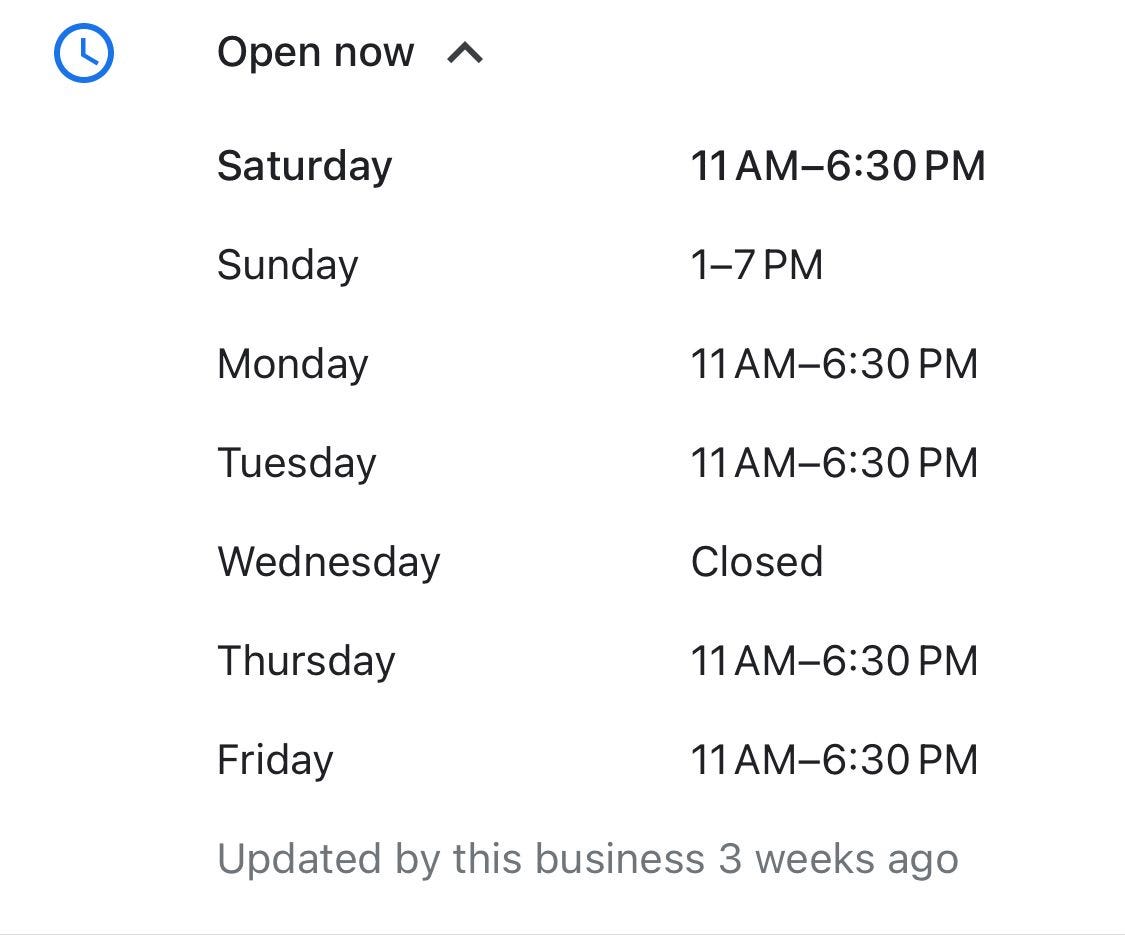
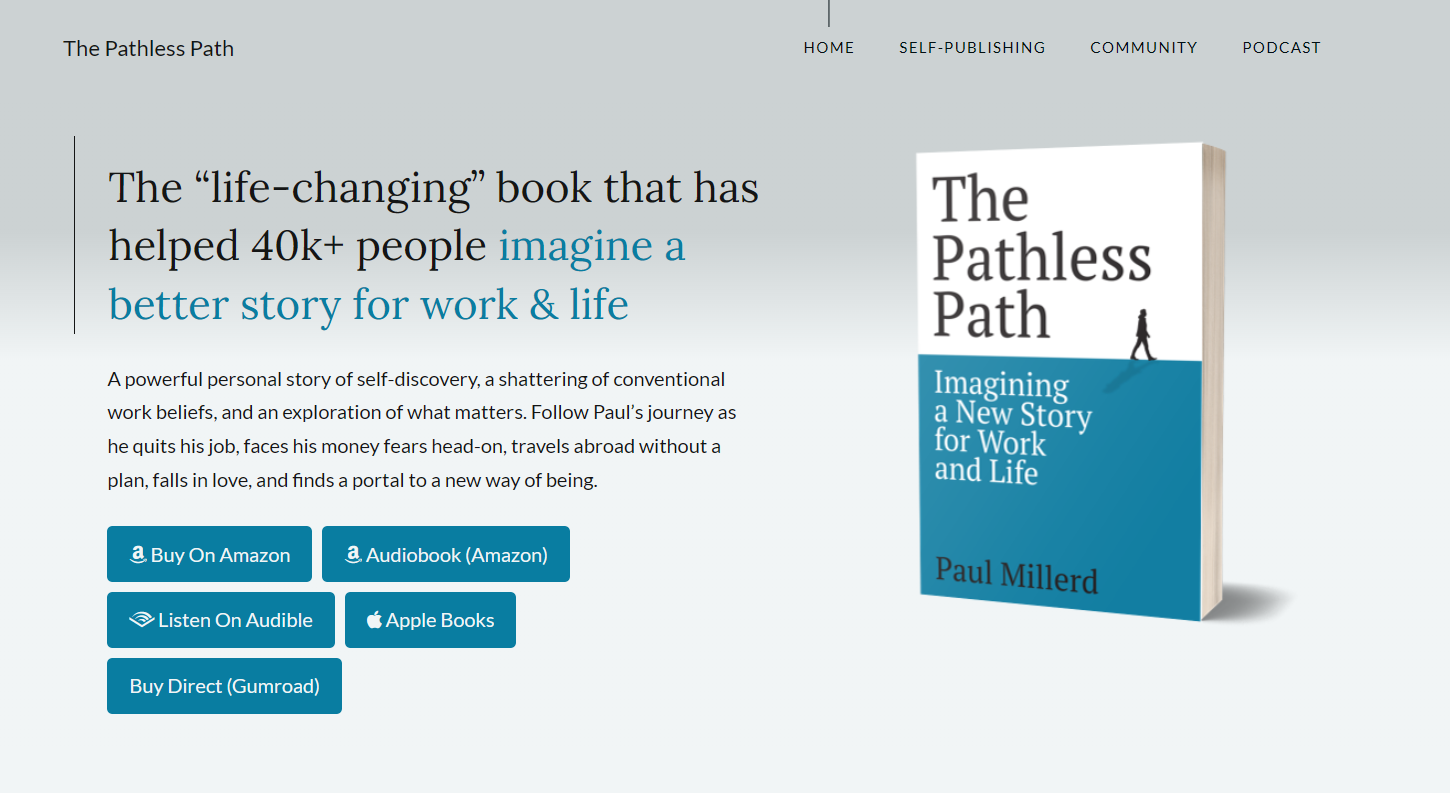





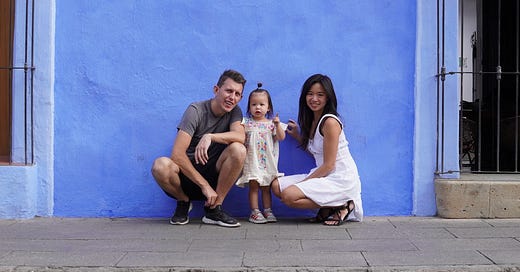

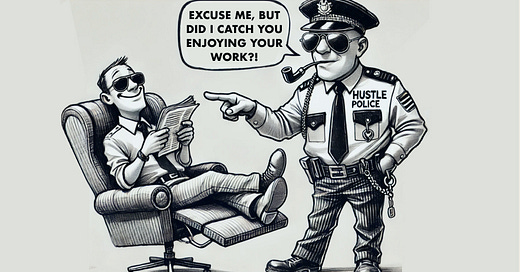


I resonate with a lot of these points on being an expat. This is my favourite quote to encapsulate how eye opening visiting (or living) overseas is:
“When overseas you learn more about your own country, than you do the place you're visiting.”
—Clint Borgen